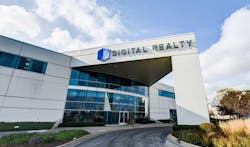Trends in Supply and Demand Shape the Boston Data Center Market
Last week we launched a special report series on the Boston data center market. This week, we’ll look at trends in market supply and demand in the Massachusetts Bay area.
Get the full report
Boston is a major regional employment center and home to many enterprise companies. Companies or research facilities with significant locations in the broader Route 128 include Raytheon, Wayfair, Kronos, Boston Scientific Corp., Fidelity Investments, IPG Photonics, Liberty Mutual, Gillette, State Street, and General Electric.
Today, the city is home to an impressive 59 robotics companies, which is a huge number given its geographical size.
The surge of robotic startups in the city, such as Boston Dynamics and iRobot, is also a direct result of the number of investors in the area. In 2013, Boston companies received $3 billion in venture capital investments, more than any region outside California. Today, Boston ranks third in the world in terms of venture capital investment.
In addition to this, over 550 biotech and drug development companies do business in Massachusetts, with close to 1,400 drugs in development. Healthtech is a booming sector in Boston. In fact, Boston’s healthcare and social assistance industries account for over 18% of total employment. Five of the 10 largest employers in the city are hospitals.
The surge of robotic startups in the city, such as Boston Dynamics and iRobot, is also a direct result of the number of investors in the area. Today, Boston ranks third in the world in terms of venture capital investment.
Not surprisingly, edtech is also a key growth factor for Boston. The state is home to some of the top graduate business schools including Harvard University, Massachusetts Institute of Technology, Bentley University, Boston College, and Boston University. Edtech is a key employer in the area. Some exciting companies that have opened in recent years include edX, Evertrue, Panorama Education and NewGlobe.
NewGlobe supports national and state governments by creating powerful technology-enabled education systems. They do this by gathering and applying data- driven learning improvements across every aspect of the education system.
Finance also has a rich history in Boston. There are 350 Fintech startups headquartered in Massachusetts, with the number increasing year on year. These exciting new companies are finding ways to collaborate with the city’s established financial and technology services sector, which includes major companies such as Bank of America and Fidelity Investments.
Regarding startup companies in general, 2017 findings from the US Chamber of Commerce indicate that Boston stands atop the Innovation That Matters rankings, edging out the San Francisco Bay area. Boston has earned the top ranking in startup density and capital access, and gets high marks for talent access and connectivity. The presence of top universities produces a steady stream of new tech talent, and the city government has offered strong levels of support.
Understanding Demand and Data Gravity
Business growth brings with it data growth. From a global perspective, the volume of data being created and processed is growing exponentially.
Source: Data volumes, exabytes, enterprise
Data Gravity Intensity, as measured in gigabytes per second, is expected to grow across 53 metros by a compound annual growth rate of 139% globally through 2024 as data stewardship drives global enterprises to increase their digital infrastructure capacity to aggregate, store and manage the majority of the world’s data.
Effectively, Data Gravity describes the process whereby the accumulation of data results in the parallel accumulation of applications, systems and services required to store and process that data. There are nearly 50 Greater Boston start up accelerators, incubators, and similar support programs. In terms of VC funding received since 2013, the region shares third place with the Southeast.
With the data mass too unwieldy to be moved between data centers, cloud services and networks, data architectures need to evolve and become data-centric, bringing users, applications and networks to the data instead.
While the concentration of data-driven multinational companies and high-tech startups is creating a wealth of new business opportunities across industries, the region faces significant challenges around data gravity. This explosion in data growth has serious implications. This is because as more and more data is created and processed across organizational locations, it becomes increasingly difficult for the enterprise to manage.
Trends in Supply
The Boston market’s supply of data center space is relatively stable, owing to the size of the market and the existing providers’ ability to support the demand for space from local customers. However, when comparing to the report from 2017 (Q4 2016), there are changes in the market.
The data indicates that there has been some shrinking in the Boston market, as measured by commissioned power and commissioned space. However, Boston continues to be a mature market in a high-cost location that is focused on workloads that require proximity. This data proximity lessens the impacts of data gravity.
Download the full report, Boston Data Center Market, courtesy of Digital Realty, to learn more about this competitive data center market. In our next article, we’ll look at the business environment in Boston. Catch up on the previous article here.

